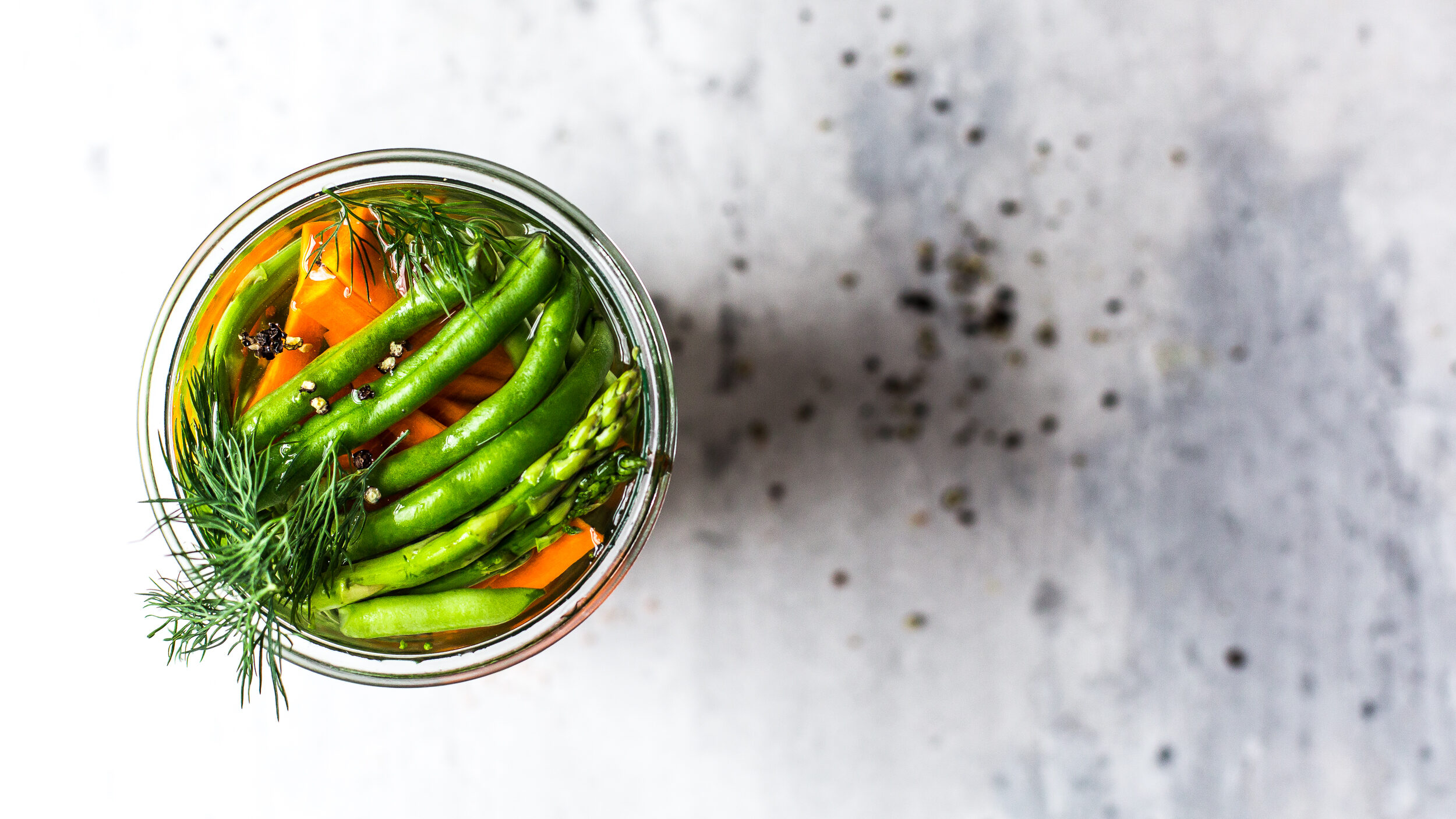
If you have a surplus of CSA produce or a fruitful home garden, these methods can help you enjoy your summer bounty for months to come!

Ferment
Make your favorite summer vegetables last all year long by fermenting them! There are many wonderful benefits of eating fermented foods, especially the nutritional ones provided by probiotics that develop during the fermentation process.

Freeze
This freezer pesto recipe is a great way to use and store excess basil from your garden!
Not feeling pesto? Freeze other herbs with ease: Fill each insert in an ice cube tray about 2/3 of the way with herbs (chopped or in large pieces), then add olive oil or broth and freeze. Hard herbs like rosemary, sage, thyme and oregano work best for this method. Now you’ll have flavorful, herby bases for soups or sautés!

Dry
Tomatoes
Preserve your summer tomatoes for rich, sweet flavor in autumn and winter! Then enjoy the tomatoes dried, or rehydrate in hot water for plump, juicy tomatoes in sauces and soups.
Herbs
- Hang dry: Lavender, marjoram, mint, oregano, rosemary and sage are great for hang drying. Bundle each herb in bunches of 10 to 12 stems, tied with rubber bands, and hang upside down in an airy, cool room out of direct sunlight. The bundles will dry in one to two weeks, depending on the weather. (Humid weather slows the drying process.) Once dry, strip the leaves off the stems, place in a jar and store in a dry, dark place. Use within three months for best flavor.
- Dehydrate: Basil, dill leaves, lovage, parsley and thyme don’t dry well with the hanging method — instead, remove the leaves from the stems, cut into small pieces, and lay on screens to air dry or place on a cookie sheet to dry in the oven or a dehydrator. Set the oven or dehydrator to a low temperature (below 150°F), and stir often until the leaves are dry. Store in glass jars.

